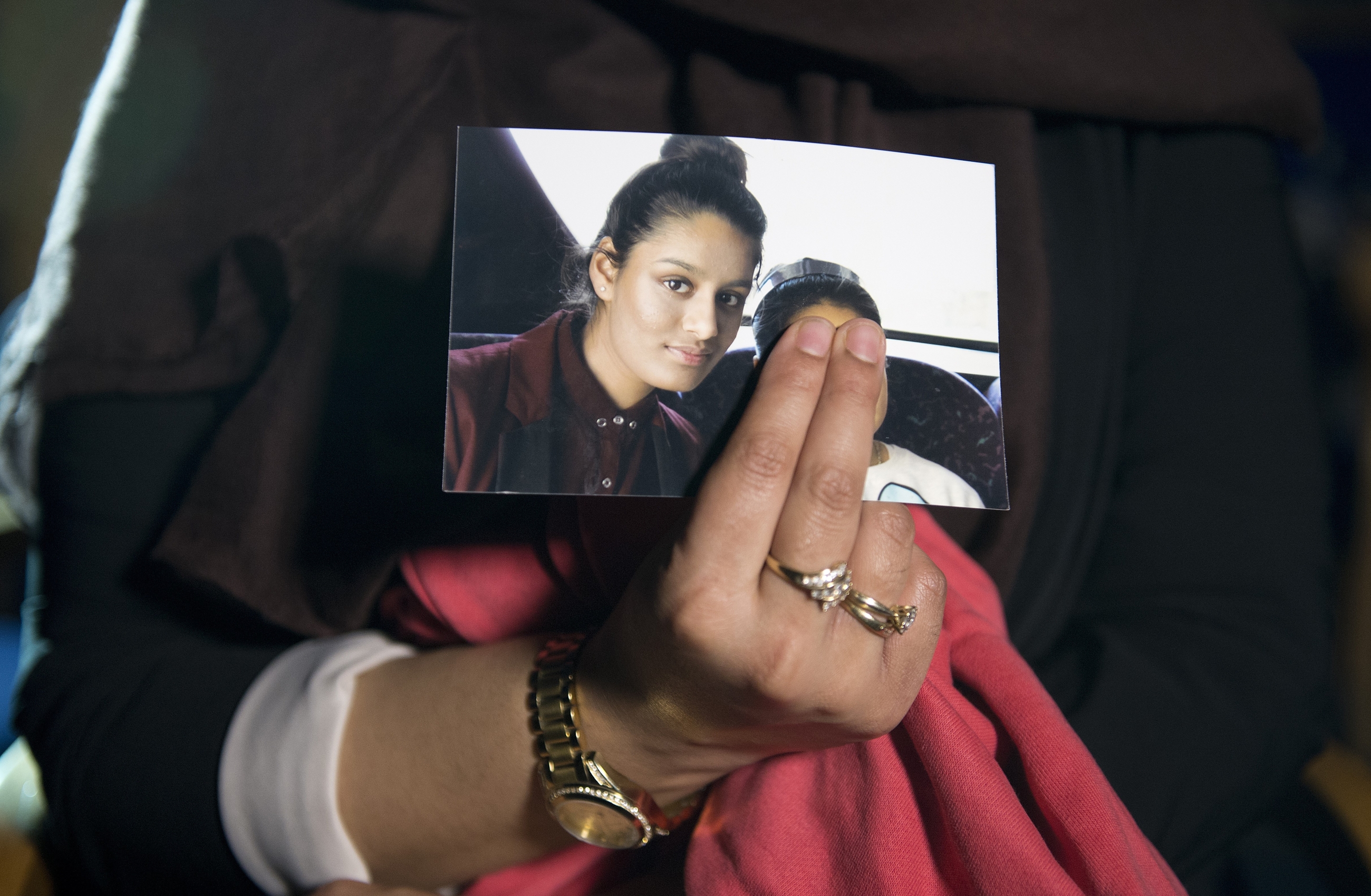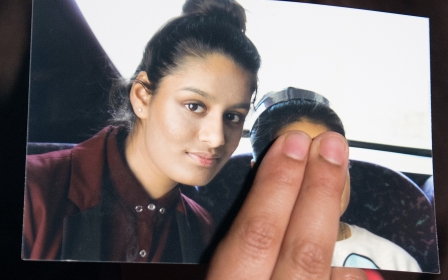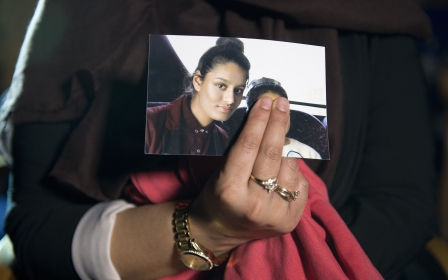UK revokes citizenship of British IS teen seeking return from Syria

The British government has revoked the citizenship of teenager Shamima Begum, who left the UK at the age of 15 to join the Islamic State (IS) group in Syria, according to a letter obtained by ITV News.
Begum's family received the letter on Tuesday, stating that the UK's Home Secretary, Sajid Javid, made the decision "to deprive" Begum of her citizenship, the British news outlet reported.
"In light of the circumstances of your daughter, the notice of the Home Secretary's decision has been served of file today [19th February], and the order removing her British citizenship has subsequently been made," the letter reads.
The family's lawyer, Mohammed Akunjee, confirmed the news in a statement on Twitter later in the day.
Begum's family is "very disappointed with the Home Office's intention to have an order made depriving Shamima of her citizenship", Akunjee said.
New MEE newsletter: Jerusalem Dispatch
Sign up to get the latest insights and analysis on Israel-Palestine, alongside Turkey Unpacked and other MEE newsletters
"We are considering all legal avenues to challenge this decision," he said, without going into further detail.
Legal fight to prevent return
In a statement to MEE, a Home Office spokesperson said the department does not comment on specific cases, "but any decisions to deprive individuals of their citizenship are based on all available evidence and not taken lightly".
"In recent days, the Home Secretary has clearly stated that his priority is the safety and security of Britain and the people who live here," the spokesperson said.
'Any decisions to deprive individuals of their citizenship are based on all available evidence and not taken lightly'
- UK Home Office spokesperson
"In order to protect this country, he has the power to deprive someone of their British citizenship where it would not render them stateless."
However, Begum's lawyer told The Independent that she has never held a Bangladeshi passport.
"Our position is that to all practical purposes she has been made stateless," Akunjee told the UK newspaper.
Middle East Eye reported on Friday that any attempt to block Begum's return to Britain could be thwarted due to a recent legal ruling that ordered the UK government to restore citizenship to two British nationals suspected of involvement in terrorism.
The Home Office had cited "terrorism-related and national security grounds" in its decision to strip two men of their UK citizenship.
Like Begum, both men are of Bangladeshi origin, and the government's decision made them stateless.
One of the men was left stranded in Turkey, where he said he had been involved in aid work helping Syrian refugees and was innocent of any wrongdoing.
The Special Immigration Appeals Commission (SIAC) ruled in November that the Home Office had wrongly assessed that the two men were dual British-Bangladeshi nationals - and ordered their UK citizenship be restored.
The ruling has implications for many other cases involving British nationals who have been subjected to the UK government's highly controversial, and legally contentious, citizenship deprivation orders.
The frequency of those orders has increased in recent years due to the government's concerns about the threat posed by suspected fighters returning from Syria.
National debate
Begum, now 19, has sparked a national debate about whether she and other UK citizens who joined IS should be allowed to return from Syria.
In an interview published in The Times last week, Begum, speaking from a Syrian refugee camp, said she wanted to come home for the sake of her baby.
She left Britain for Syria in February 2015 alongside Amira Abase, 15, and Kadiza Sultana, 16. All three teenagers were from the east London neighbourhood of Bethnal Green. They joined another girl from the area who had gone to Syria a year earlier.
'We are considering all legal avenues to challenge this decision'
- Mohammed Akunjee, Begum family's lawyer
Writing in The Sunday Times on 17 February, Javid, the UK home secretary, said he would "use all [his] power" to stop anyone who joined IS from returning to the country.
However, Javid said the UK would not make people stateless by stripping them of their British citizenship if they do not hold citizenship in another country.
Sir Peter Fahy, the former chief constable of Greater Manchester police, told the BBC last week that "the biggest challenge if she [Begum] did come back will be how the police will keep her safe and how she wouldn't be some sort of lightning rod for both Islamic and far-right extremists".
Others have insisted that Begum should be allowed to return, arguing that she and the other girls were groomed online by IS propagandists to join the group and marry its fighters.
Baby 'blameless'
Last week, Begum's family told British broadcaster ITV that she should face the legal system in Britain.
They said they were most concerned about the safety of her baby, who is "blameless in these events".
The head of the British foreign intelligence agency MI6, Alex Younger, said at a security conference in Munich on Friday that while Begum would be considered a security threat, "British nationals have a right to come to the UK".
Some 14 people were deprived of citizenship on the grounds that their presence in the UK was "not conducive to the public good" in 2016.
But the number swelled to 104 people in 2017, according to government figures.
Middle East Eye delivers independent and unrivalled coverage and analysis of the Middle East, North Africa and beyond. To learn more about republishing this content and the associated fees, please fill out this form. More about MEE can be found here.



